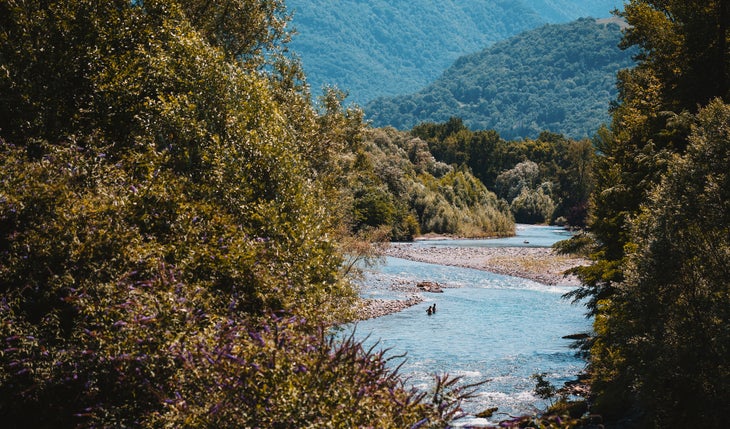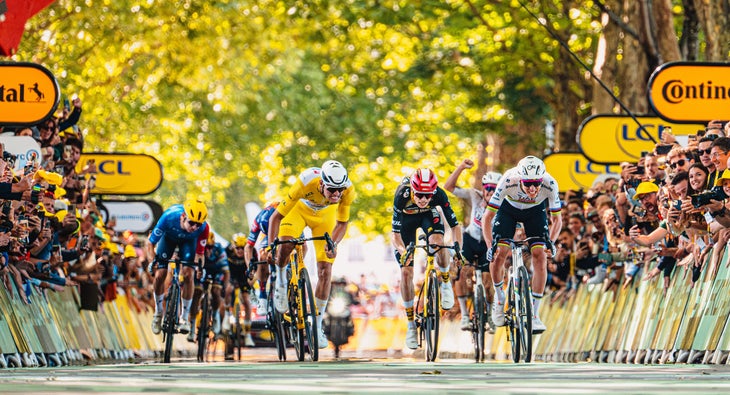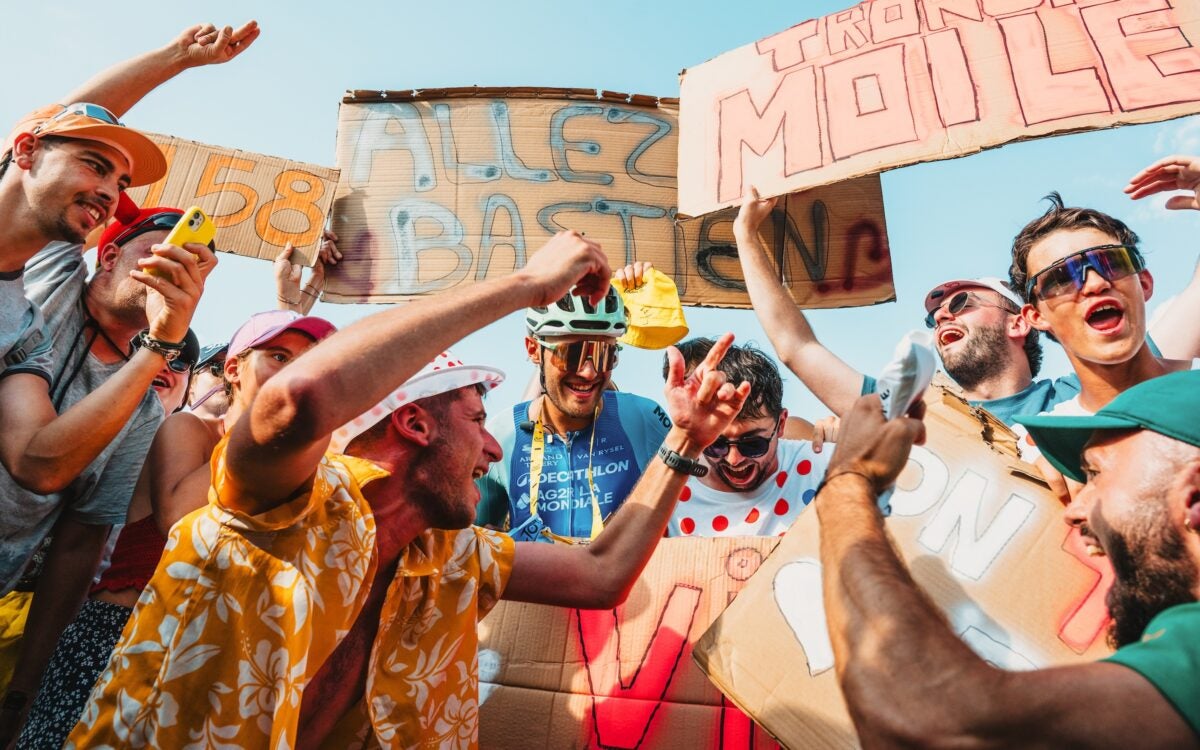“], “filter”: { “nextExceptions”: “img, blockquote, div”, “nextContainsExceptions”: “img, blockquote, a.btn, a.o-button”} }”>
Professional riders aren’t the only ones dreaming of making it to Paris this year.
For cycling fans, July is the highlight of the season. We are glued to our TV sets and mobile devices at home or work, watching the world’s best professional cyclists entertain, astonish, and inspire us in the Tour de France.
We each have our own unique way of absorbing the vast amount of content surrounding the biggest bike race on the planet and selfishly feel lost during the two rest days when our heroes take some days off to recover.
As the month draws to a close, we begin to wonder how we’ll adjust back to our normal daily routine once the men reach Paris. That’s until we realize that our annual cycling binge will continue for another nine days with the Tour de France Femmes from July 25th-August 3rd.
As seen on TV, especially during the mountain stages of the Tour de France, many amateur riders and fans ride the same course as the pros, dreaming of what it must feel like to race in the Tour and to see their name painted on the famous climbs.
Most of these riders will cover a portion of a stage or two to reach their preferred observation point and cheer as the race passes by, but can only dream of what it feels like. However, some amateur riders have signed up for an opportunity to “Ride Every Kilometer” of the Tour de France, organized by Grand Tours Project and other tour group companies.
Prices vary depending on if you are doing the full event of 26 days, 25 nights, and all 21 stages or if you join at week 2 for 9 stages or week 3 for 6 stages. Premium accommodation is an upgrade, but prices range from $5k-$15k.
Unforeseen challenges
 There’s plenty of climbing to do, but also some stunning scenery to take in (Photo: Gruber Images)
There’s plenty of climbing to do, but also some stunning scenery to take in (Photo: Gruber Images)
When I was still racing, I was often asked, “how hard is it to finish the Tour de France?” Given my fitness level at the time and having completed seven of the nine times I started the race, I would respond, “it’s not that hard to finish the Tour. But finishing in the top 20 is hard, the top 10 is super hard, the top 5 is extremely hard, and winning is next to impossible!”
One year into retirement, I realized how wrong I was about that answer and have regretted saying it ever since.
The “Ride Every Kilometer” event began in 2016, with participants riding every stage of the Tour de France one day ahead of the pro men. The 2025 race route is 3,320 km long with 51,500 m of elevation gain, making it the ultimate ‘bucket list’ experience for any cyclist brave enough to attempt it.
A few friends of mine have chosen to prepare and participate in this year’s event, so I reached out to them during the first rest day in Toulouse to get an update on how things are going since they rolled off the start line in Lille, France, on July 4th.
They are supported each day by a team that handle their hotels, baggage, feeding, and transfers from stage to stage. However, there have been some unforeseen challenges along the way, as one would expect during such a grueling event.
We must remember that in a peloton of 184 riders, much of the time you are in the draft and just getting pulled along by the group. However, they are amateur riders riding in a group of 7-9 riders every day, so it takes them 30%-40% longer than the pros to finish each stage.
The pinnacle of human endurance and mental strength
 There’s plenty of inspiration to be found from the race itself (Photo: Gruber Images)
There’s plenty of inspiration to be found from the race itself (Photo: Gruber Images)
This means less time to recover, and they don’t have big team busses waiting for them with showers and comfortable seats to help make the long transfer to the next team hotel a bit more tolerable.
Instead, they finish the 6-8hr stage, change and towel off at the finish line, throw down some food and recovery products, then cram into a small van and drive 2-4hrs to the next hotel. Once they arrive, they find their room, finally take a shower, eat dinner, and then get to bed as soon as they can only to do it again the next day. Sounds amazing, right?!?!
The rain on stages 3 and 4 really challenged the group, as it was relentless from start to finish. It quickly became a mental challenge, not only dealing with compounding fatigue and inclement conditions but also adjusting to the rhythm of riding so long with a new group.
As we see with the pros, tempers can flare quickly under a state of fatigue but are also quickly forgotten as there is no time for wasted energy or drama.
Each day is filled with countless positive memories, as each participant understands the significance and uniqueness of the roads they are riding on. From the strong emotions felt at the war memorials in Normandy, to the warm interactions with fans and family along the route, these recreational amateurs understand they are partaking in something truly formidable.
The Tour de France is not just a bike race, it’s the pinnacle of human endurance, mental strength, and passion for the sport. The “Ride Every Kilometer” event exemplifies this spirit by allowing recreational riders to experience the challenges and triumphs of the professionals firsthand.
As they cycle over the same routes, face the same grueling conditions, they create memories that will last a lifetime. Whether it’s learning to work together as a team, riding on the most iconic roads in France, or the emotions of achieving something once believed to be impossible, they will soon be able to answer for themselves the question of “how hard is it to finish the Tour de France?”
Huge shout out to everyone associated with of this massive event and thank you to my friends Allen, Felix, and Mike for sharing some of their stories with me for this article.
